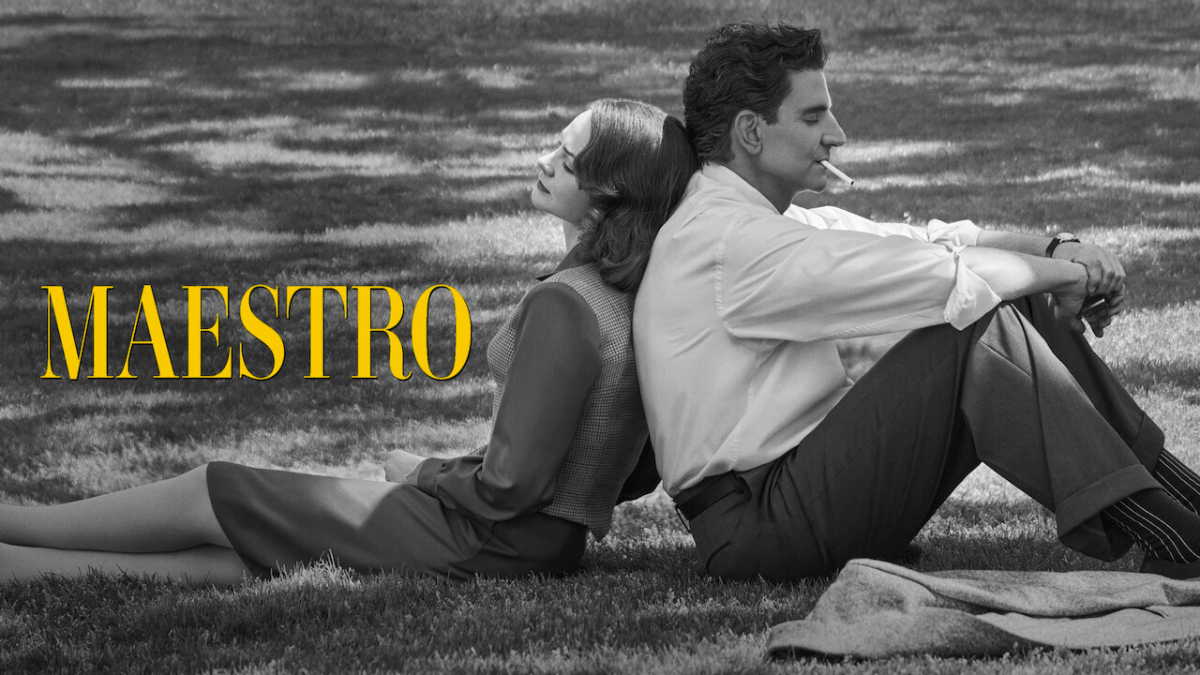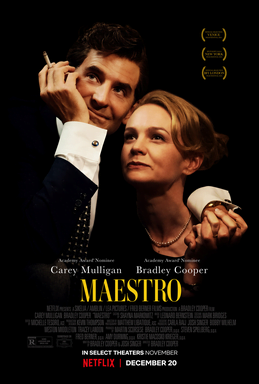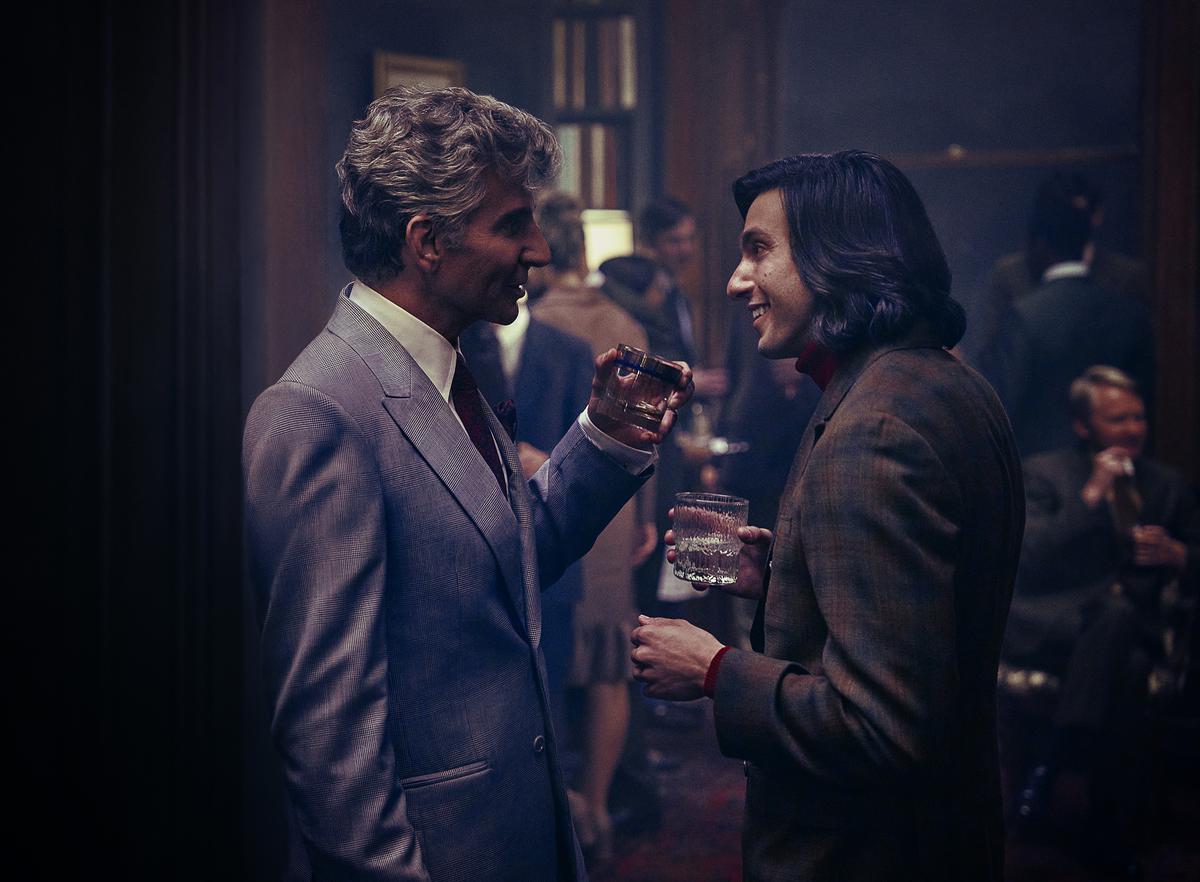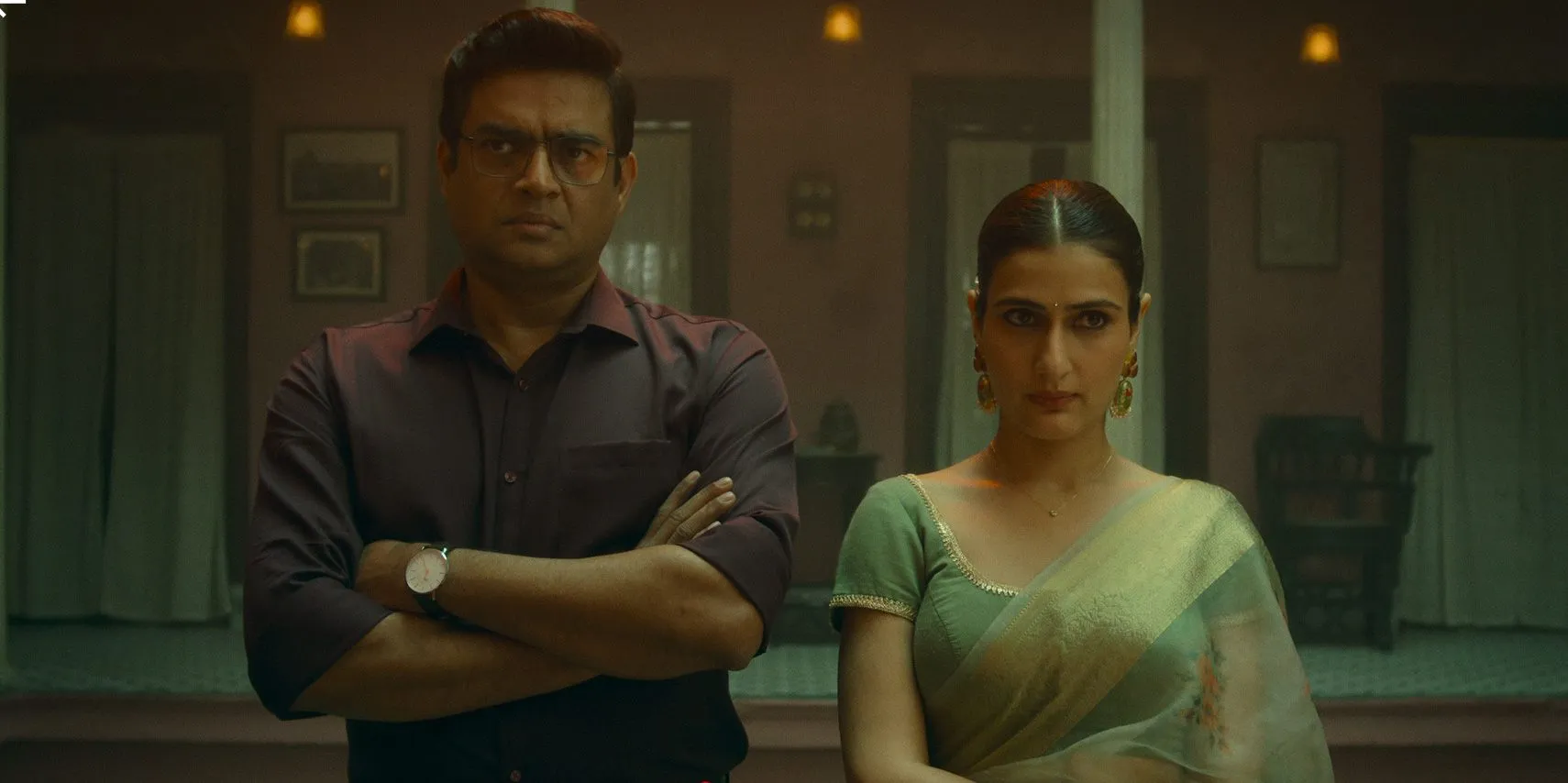Maestro, a romance musical released in 2023 is a rhythm wrapped in love and played with notes of passion, elegance, and sophistication. Bradley Cooper’s directorial experiment tries too hard to be an art piece. It enjoys its highs and lows but leaves the audience with a sense of agony, empathy, and yearning.
Bradley Cooper’s directorial experiment tries too hard to be an art piece. It enjoys its highs and lows but leaves the audience with a sense of agony, empathy, and yearning.
The film mimics the musical notes, right from their ebbs and flows. The slow progression of grey scales to colorful musical notes is a worthy lesson in film-making. The film claims to be a depiction of the three-decade-long marriage of the famous American composer Leonard Bernstein and his wife Felicia Montealegre. It navigates sexualities, identities, and a relationship that survives beyond the societal confines of the institution of marriage.
The pursuit of greatness in Maestro
Bernstein, played by Cooper is a music composer with a perpetual thirst for greatness. A fateful chance and his shot to success is an intoxicating narration, but the debris of the relationship that he leaves in its wake is heartbreaking. The curtains open revealing a man in his bed. He creates, plays, and then laments that his music, the music he creates, is not serious enough.
On his journey, he meets an aspiring actress and instantly falls in love. His relationship with another man is conveniently pushed backstage. He introduces the woman and the man he is in a relationship with at this point, suddenly but with grace. The interaction is rather awkward and provides a moment for the audience where a queer relationship gives way to a socially acceptable union.
The passionate couple
Leonard and Felicia are a whirlwind together. The camera draws into their private moments almost as a voyeur and conveniently draws back when the relationship turns serious. The episodic narrative and smooth transitions could have been a creative genius but there are too many too often. The abrupt cuts, changes in locations, and advances in time are almost too difficult to keep track of. The changes are well-intentioned but feel like the chapters are glossed over casually.
The young couple is beautiful and madly in love. The narration exclaims that they are always seen together. The film shows them kissing, holding hands, or dancing away into the abyss of pleasure. The wedding, the children, and the careers follow almost as if pre-destined. The story is about how they meet and separate only to meet again, everything else is a background score.
Psychoanalysing Bernstein
There is a private moment depicted in Maestro when the young couple is lying on the floor, conversing romantically. A vulnerable moment erupts and Bernstein confesses how he dreams of killing his father and fantasises about it in reality. The connotations of an abusive childhood and the trauma that he bears the weight of are almost too heavy to carry. His actions that follow, the need to create and be great are reflective of his troubled childhood and the repressed desires for a father’s validation in life.
Felicia is madly in love with Leonard, who is a genius who is held together by the woman he is in love with. The moments of separation show him disheveled and drunk, almost self-destructing. Every creation and every achievement is accompanied by his wife and not the men he casually meets. The consistent need to be the child and then breaking down while caring for his wife is only affirmation that the lost and vulnerable child in Bernstein finds refuge.
Sexuality and identity
Depictions of great men come with the responsibility of authentically portraying their identities. Bernstein is unapologetically himself and binding him to a sexual tag would limit his existence, Maestro lets him be who he is, and rightly so. He is neither celebrated nor condemned, he is just himself, a maestro.
He is bisexual, and while his love for his wife is apparent, his attraction towards young men cannot be ignored. In a particular scene, he meets a young man at a party and almost immediately pulls him in for a kiss. His wife catches them and only chides him to brush his hair. The scene sketches the relationship beautifully, the apologetic but unembarrassed Bernstein and a controlling Felicia unveil the secrets this marriage veils.
Maestro beautifully portrays mental health
The one thing Maestro achieved without any doubt is normalising mental health. Leonard discusses his wife’s depression, anxiety, sadness, and mental struggles while Felicia understands her husband’s need to create. When two artists decide to spend a life together, they carry the burden of their art with them. Felicia was a television star and Leonard a great composer, the two together were always pressed with the need to create.
The one thing Maestro achieved without any doubt is normalising mental health. Leonard discusses his wife’s depression, anxiety, sadness, and mental struggles while Felicia understands her husband’s need to create.
Felicia’s anxiety also comes from Bernstein’s affairs. She seems to permit it all in the beginning but towards the middle, she sees her place slipping away and gets almost too anxious. She needs him as much as he needs her and the separation brings with it artistic struggles. Maestro doesn’t side with either and shows them both as their vulnerable selves. The truth, discretion, and transgression in the relationship draw both to the brink of a breakdown from which only they can anchor themselves.
In a powerful dialogue, Felicia blames Leonard that it’s impossible to stay in the same room as him because he ‘throws the music at us.’ The music that binds them becomes a point of constraint and strangles the relationship. It is from this moment onwards that Maestro start to feel suffocating.
Love and acceptance: the maternal role
Bernstein’s sister calls him ‘a man who can’t just be wholly one thing.’ Leonard Bernstein exists in parts and only Felicia knows and accepts every ounce of him. She almost makes him whole and nurtures him like a mother. Masculinity and femininity are clearly distinguished here where she almost becomes motherly. Her desires are never discussed, her sexuality never shared and her identity never revealed. She is a mother creating a genius that the world needs and then putting him together as one when he shatters into many pieces.
She expresses how difficult it is to ‘love and accept someone who doesn’t love and accept themselves.’ The only notable thing in the entire fiesta is that the woman is supposed to love and accept selflessly whereas the man can continue having affairs and indulge in drugs and alcohol without worrying about anything.
Felicia as the side actor in Maestro
While Maestro garnered applause for Cooper, Carey Mulligan’s performance was at par, if not better. Her smile binds the film and forgives the minute distractions. She is affectionate, loving, maternal, sacrificing, and conveniently passive. She has been constructed as the ideal feminine character, hysteric and loving at the same time.
While Maestro garnered applause for Cooper, Carey Mulligan’s performance was at par, if not better.
Her intentional passivity is too obvious. Montealegre was a woman of merit and fame, but her career and journey do not get enough attention in the film. She becomes an invisible bystander, an audience to Bernstein’s greatness. His compositions, fervor, and passion are beautifully depicted while she stands in the wings waiting for a kiss from her darling maestro.
Felicia’s smile holds the maestro together, the film and the man. She witnesses his rise and fall and supports him when no one else does. Her fame is rarely discussed except in the few glimpses where she drowns herself in work to overcome the separation from Bernstein. She is his anchor and gives him a family, the film never constructs her more than that.
Maestro is about love, and it becomes even more apparent when Felicia forgives him towards the end. She says, ‘I miss him, that child of mine,’ the child she adopts almost instantly after they first met. The knots in the relationship are resolved when Felicia is diagnosed with breast cancer that has metastasised to her lungs. Bernstein, without any hate, looks after her. The family is resurrected only to celebrate the passing of Felicia.
Her last days aptly summarise the plot of Maestro. The whispers of ‘I love you’ and the subtle cuddles convey the love and warmth that this relationship enjoys. Her death is a beautiful memory of their youth and her smile wrapped in his arms paints a beautiful picture.
The end: a chaos
The end is a celebration of Bernstein’s life sans Felicia. Post her death, a car lands on screen with a number plate titled ‘MAESTRO.’ Bernstein is not a child anymore; he is back to his charisma as a teacher and ends up in a bar with his favorite student. Maestro begins and ends with Bernstein, the “maestro” as the title suggested. Wrapped in music and covered in sweat, the first and last shots tell the story of a man with and without Felicia.
The film leaves its audience with a sadness, of the wasted life of a genius you might not recognise but whose music you definitely would have heard. Maestro is a desperate attempt to create something aesthetic but the package fails to become a masterpiece. The film is like the protagonist, it just doesn’t become wholly one.









